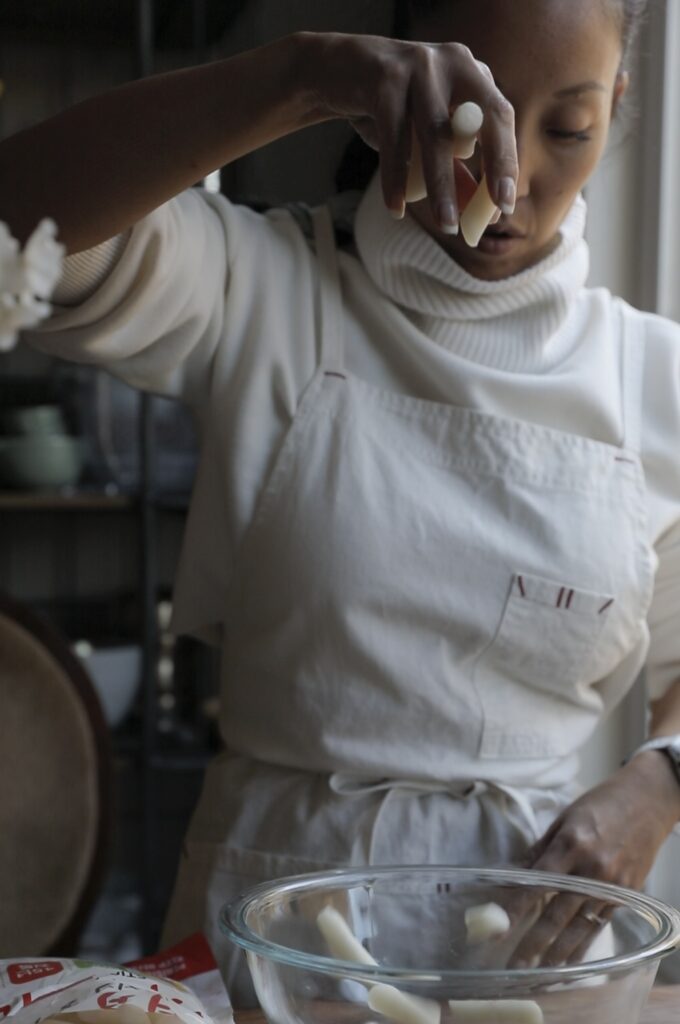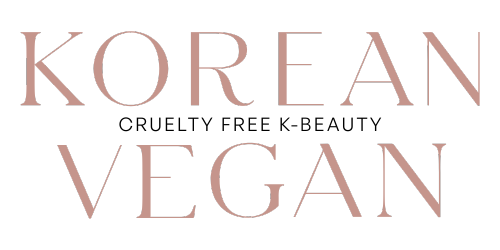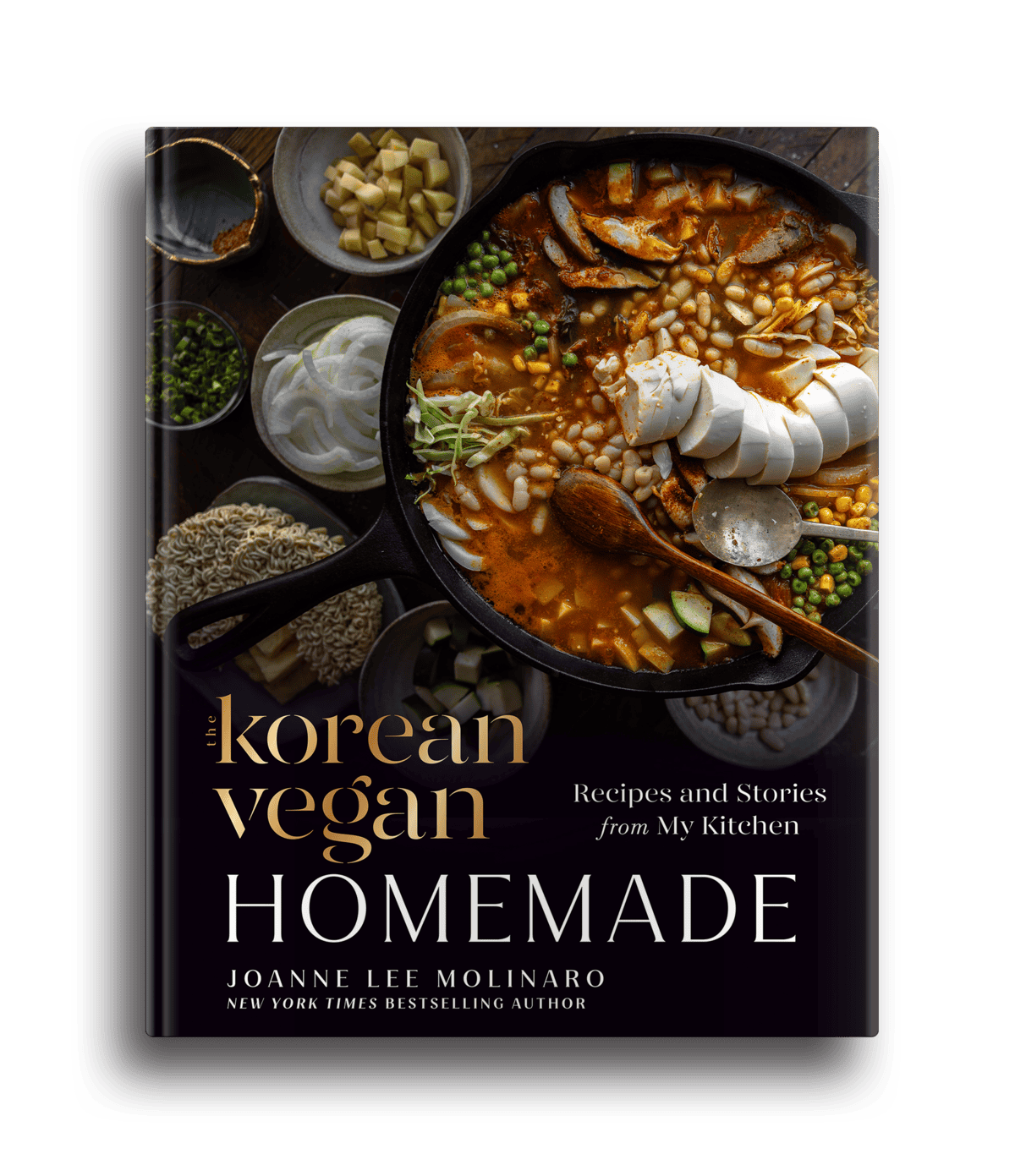The Epidemic of Loneliness


Sign up Below To Receive the TKV Newsletter in Your Inbox Every Tuesday!
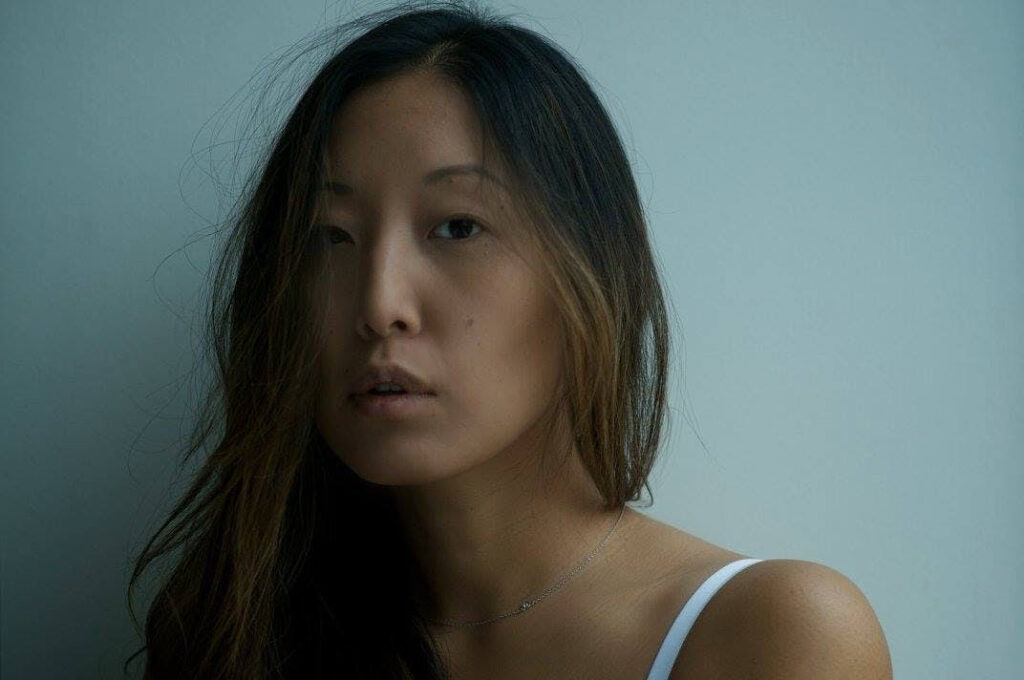
The other day, I listened to a podcast with the US Surgeon General. And he was talking about the nation’s current epidemic. What is an epidemic? It’s “a widespread occurrence of an infectious disease in a community at a particular time.”
Can you guess what “infectious disease” he was talking about?
Loneliness.
Even before the pandemic, 1 out of every 2 Americans reported feeling loneliness.
I know what you’re thinking. Big deal. What even is loneliness? Everyone feels lonely sometimes.
But here’s why it matters:
“[Loneliness] is associated with a greater risk of cardiovascular disease, dementia, stroke, depression, anxiety, and premature death. The mortality impact of being socially disconnected is similar to that caused by smoking up to 15 cigarettes a day, and even greater than that associated with obesity and physical inactivity.” – U.S. Surgeon General’s Advisory (2023).
15 cigarettes a day!
Before diving into a discussion on loneliness, perhaps it makes sense to get on the same page about what loneliness is. According to the US Surgeon General, loneliness is “the distressing experience that results from perceived isolation or an unmet need between an individual’s preferred and actual experience.” Social isolation thus leads to loneliness which, in turn, results in a host of mental and physical health problems and, possibly, an early death.
Why is loneliness so dangerous?
It turns out that humans are biologically dependent on social connection–like food, water, and sleep. Humans cannot survive without food and water and likewise, humans cannot survive without interactions, relationships, and a sense of connection with other living beings. This isn’t just a touchy, feely, frou-frou idea. It’s science:
Throughout history, our ability to rely on one another has been crucial to survival. Now, even in modern times, we human beings are biologically wired for social connection. Our brains have adapted to expect proximity to others. Our distant ancestors relied on others to help them meet their basic needs. Living in isolation, or outside the group, means having to fulfill the many difficult demands of survival on one’s own. This requires far more effort and reduces one’s chances of survival. Despite current advancements that now allow us to live without engaging with others (e.g., food delivery, automation, remote entertainment), our biological need to connect remains.
“Our brains have adapted to expect proximity to others,” and yet, does any of this sound familiar to you:
- Stay at home and stream a movie instead of going out to the theater.
- Stay at home and work on your laptop rather than going into the office.
- Stay at home and do an aerobics video in lieu of going to the gym or out for a run.
- Stay at home and order take-out instead of going to a restaurant for dinner.
- Stay at home and send direct messages and “hearts” on social media instead of actually meeting up with friends.
Because it’s cheaper, more convenient, takes less time, requires less energy, and we think the value of Netflix over cartons of takeout is sufficient to warrant any trade off.
And maybe there’s merit to a night in every once in a while, especially if you live with friends or family. I’m even a big proponent of curling up with a book by yourself sometimes. However, inadvertent habits can develop rather easily, and, if we get too comfortable with staying at home, we may be surprised at how uncomfortable walking out the door suddenly feels.
I was talking with a friend the other day and she admitted to developing a severe social anxiety during the pandemic. After two years of staying at home with her pre-teen son, the idea of stepping out of her apartment in NYC was unnerving and altogether unpleasant. My friend’s reluctance to leave her home isn’t unique. According to this study, “social anxiety is likely to be elevated across the general population and especially in women and low-income earners” as a result of the pandemic.
More and more, people are looking for excuses to stay inside the perceived safety of home. In the same way that many of us trick ourselves into believing we can operate at a high level with less than 7 hours of sleep a night, some of us have fooled ourselves into thinking we can live, just fine, without meaningful social connections.
The slippery slope becomes even more precipitous when dealing with emotional isolation. Not only do many of us struggle with the risk of actually sharing our feelings with another person (“what if they think I’m stupid??”), in some cases, we’ve been told it’s inappropriate. “There’s no crying in baseball!” Well, it seems the “no crying” rule is applicable in all sorts of contexts.

For example, the idea of discussing mental struggles in the legal profession was hugely taboo, and, quite literally, bad for your career. Any vulnerability could be exploited by your opponents, sniffed out by juries and judges alike, or otherwise subject you to potential ethical challenges. Mothers are not allowed to talk about postpartum depression or just how sucky motherhood can sometimes (a lot of times) be. Men can’t talk about feelings other than anger, lest they risk appearing “unmanly” and “weak.”
And yet:
- 71% of lawyers suffer from anxiety, 40% from depression, and 50% of lawyers say they feel a chronic sense of failure, self doubt, emotional distress, cynicism, negativity and an overall decreased satisfaction in their professions.
- Up to 20% of new mothers will experience postpartum or perinatal depression and 75% of those women will not receive treatment for their illness.
- Men account for 75% of all suicide victims in the U.S., with one man taking his own life every 20 minutes. Around the world, men are 3 – 7.5 times more likely than women to take their own lives.
The statistics regarding men were particularly shocking to me. It reminded me of a chat I had with a friend not too long ago. Sid asked whether I’d ever thought about doing a podcast episode on “loneliness.” At the time, it had never occurred to me and, in all candor, I didn’t know what I could contribute to a topic as nebulous as feeling a little alone. He then explained that an unspoken loneliness hovered over men, particularly fathers, like a thick cloud. They could neither acknowledge it (because they were “men”) nor ignore it (because they were human). Sid’s description of the deficiencies in “male bonding” was echoed by an article I read recently in the Economist:
[Mark] was taught male friendship is “stoic and lacking outward affection.” But now he sees a different portrayal of friendship on social media, particularly by women and lgbt people. He would love, he says, to be able to “show more affection and drop the constant snide comments and ribbing,” but he finds the disconnect between what he grew up believing about friendship and how he sees other people relating to each other unsettling. The “quasi-socialising” he and his friends do online, via games and various message boards, meets no real need, he adds.
What, then, is the answer to Mark’s dilemma? Just do the thing that goes against decades of “male conditioning”?
In short:
Yes.
Last week, I talked about faking out my imposter syndrome by constantly asking myself, “What would ‘Joanne 2.0’ do?”
Well, why not fake out loneliness by asking the same question?
“What would a person who hasn’t been fed decades of toxic masculinity do?”
“What would a mother who KNOWS that other mothers feel disillusioned with motherhood do?”
“What would a lawyer who cares as much about her mental health as she does her client do?”
Sid isn’t like a lot of men I’ve encountered. He demonstrates not so much as a whiff of the artifice that adheres to machismo, and, instead, acts purely on the basis of what he values: immersive conversation, meaningful companionship, emotional support, and a ripping good time. When he sensed that his male friends wanted something more than “quasi-socializing,” he started a men’s vegan dinner group that meets once a month. Over a plate of delicious plant-based fare, they discuss “manly” things, like sports–if they want to. They can also discuss travel, the next vegan restaurant they want to try, or the Korean drama they just started watching (ok, this one might be highly theoretical…). Even if they don’t talk about deep seated emotional problems, the regularity and predictability of meeting with the same group of people on a monthly basis inevitably fosters trust, and trust is the bedrock for vulnerability.
And vulnerability is the antidote to loneliness.
This week, I challenge you to ask not whether you’re lonely, but whether some of your actions might be setting yourself up for loneliness. Are you developing a habit that cuts into time you might spend in another person’s physical presence? Are you finding excuses to avoid seeing your parents, friends, cousins, colleagues because it’s more convenient to stay at home and zoom with them? Are you replacing relationships with actual humans with avatars because the prospect of “real” rejection is just too frightening?
Then ask yourself, what would the 2.0 version of yourself do?
Listen to This Week’s Newsletter!
Apple | Spotify | Google
This Week’s Recipe Inspo.
Spice Up Your Life.

Spicy Ramen Salt
A spicy, umami packed blend of seasonings that’ll enrich your broths, pop your popcorn, and heat up your pasta sauce!
What I’m…

Watching. We are currently watching nothing. After finishing up Moving, we’ve found ourselves in that familiar “what shall we watch next?” situation. If you have any recommendations, I’d love to hear them! Let Me Know! –>

Reading. Of all the periodicals I subscribe to, The Economist stands out as my favorite. I always review the weekly newsletter in my inbox. This week, I read a fantastic article on the science of longevity that you might want to give a read. Nope, it isn’t free, but to me, it’s well worth the subscription. Read –>
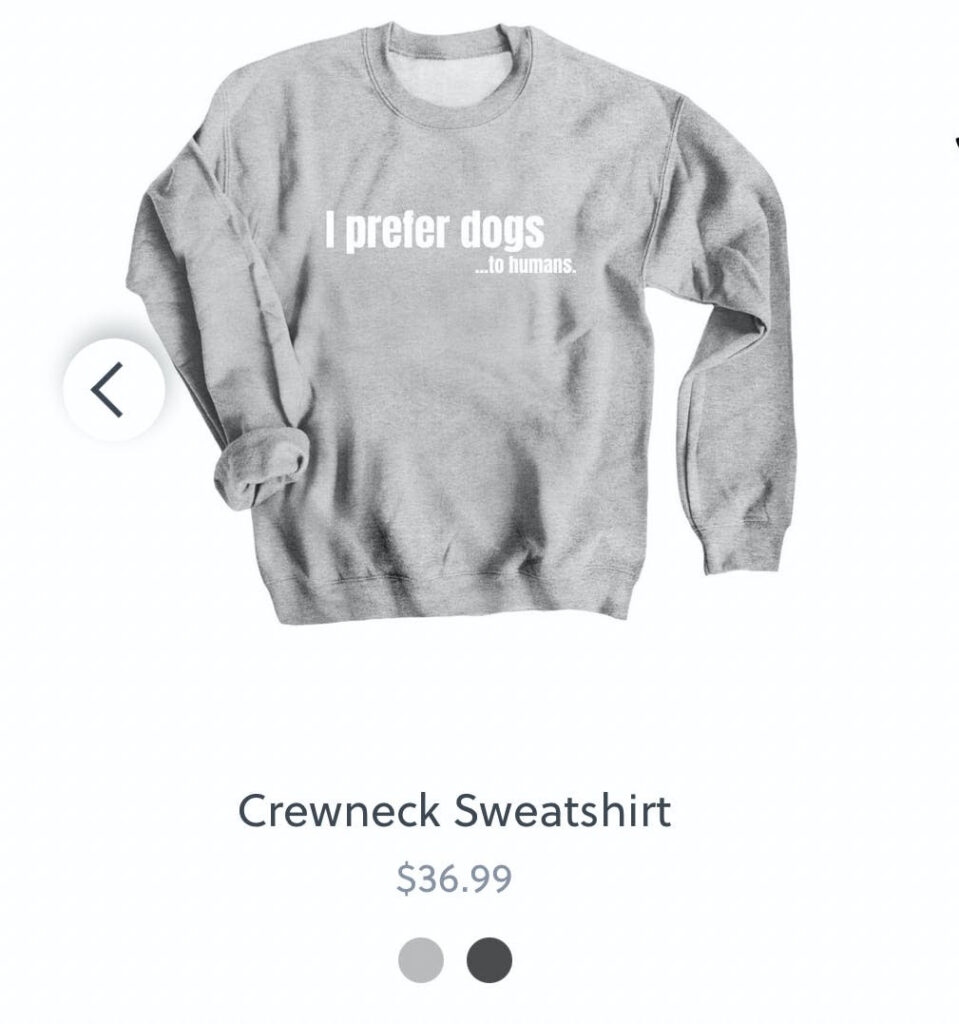
Wearing. I’ve created my own merch!! I’ve always liked clever t-shirts and sweatshirts so I thought I’d make my own–ones that I would wear! All of them are about my love of dogs, so if you’re a dog lover, give them a look-see! Shop –>
Parting Thoughts.
Many of you have written or DM’d me about the newest member of our family, Lulu. In case you missed it, Lulu is the 5-year old rescue pup we adopted a couple months ago. She has been a blessing to us in every imaginable way and sometimes, I really do wonder if Lulu is God’s way of showing me how much He felt my pain when Roodles died.
I intend to write more extensively about grief, particularly as it pertains to our animals, at some other time, but suffice it to say, losing Rudy was one of the most lonely experiences of my life and very nearly tipped me into a frightening well of despair. Many of you may not have even been aware that I lost my Rudy last summer and that was sort of by design. I didn’t want to talk about it with too many people because some messed up part of me believed that loving Rudy was about keeping my grief private, that my devotion to him could only be proven by a willingness to suffer for him. As a result, I isolated myself in every way–physically, emotionally, intellectually, socially. The only person who got to hear me talk about it–at any length–was someone who got paid by the hour, lol.
I purposely waited for over a year before even thinking of adopting another dog, because, again, I felt disloyal for even considering it. Moreover, the thought of opening my heart to another animal was terrifying to me and, by that time, the isolation afforded by my grief was no longer uncomfortable. In fact, it had grown oddly soothing. One of the nice things about being part of a partnership is that Anthony made it clear to me how ready he was to adopt another dog. And, one of the nice things about being part of a community is that other vegans inspired me to think outside of myself, to think of all the dogs who needed a happy and healthy home, one that I could provide.
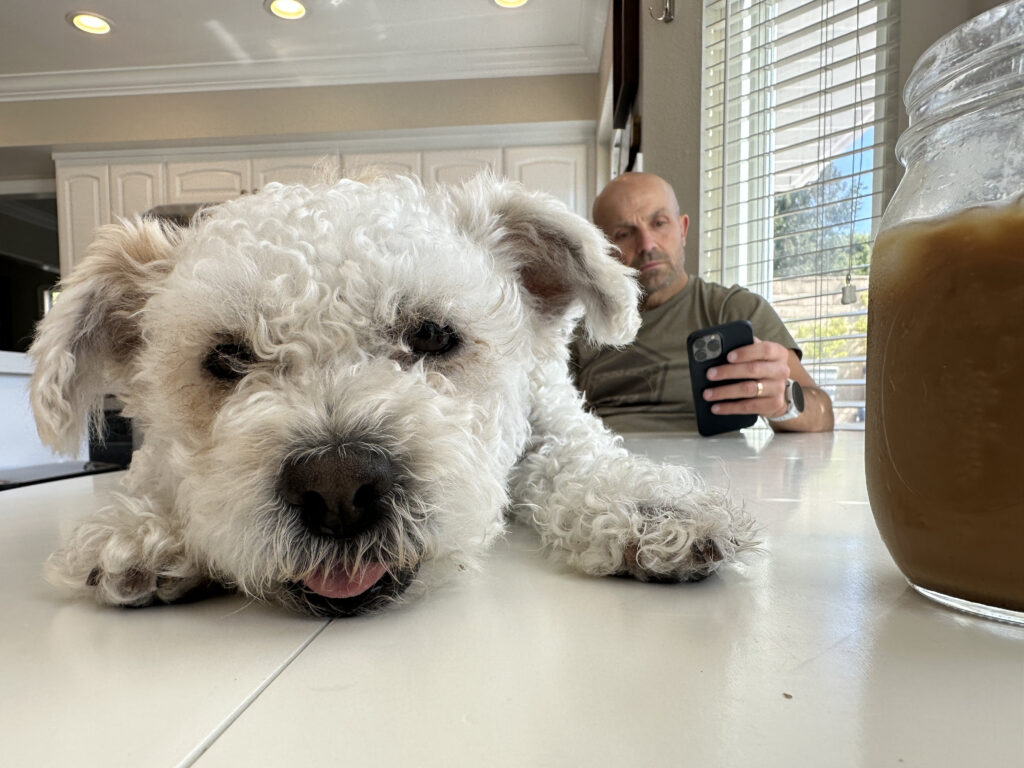
Lulu teaches me that the love proven by our grief doesn’t end with joy. I whispered to her the other day, “Lulu. I think God sent you to me to show me how much He hurt for me when Rudy died.” She licked my face and buried her head in my neck.
-Joanne


